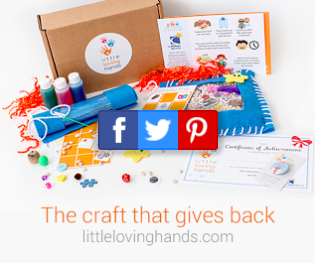ASW
|
|
The Hidden Way That Kids Learn Empathy (and How Parents Can Help) As parents, I think one of our main goals is to help our children develop an understanding and empathy for other people. If you are the parent of a toddler, you know that instilling this idea of empathy seems an almost impossible task. There's a good reason for that--it is almost impossible for a toddler. Most of us know that toddlers (under about 4 years of age) simply don't have the cognitive or social skills to understand what other people might be feeling or thinking. This task is what psychologists call Theory of Mind--that is the ability to understand or anticipate what another person is feeling or thinking. In other words, it's the ability to put yourself in someone else's shoes. This skill is the basis for empathy, but also is crucial in children learning social skills like sharing and helping others. So how do children learning this important skill of taking another person's perspective? Researchers have long believed that this ability develops in most around 4 years of age. This video gives a great example of the difference between a 3 and 4-year-old in perspective-taking ability:  After viewing this video, it's almost as if something magical happens between age 3 and 4 that helps kids learn this skill. In a sense, this is true. Children's brains are constantly changing and making new circuits that make new thought processes possible. However, new research is showing that us that how parents talk to their children may also aid in this perspective-taking ability. A recent study published in the journal Child Development showed that children whose mothers described more about how other people might be feeling or thinking had better perspective-taking skills than those whose mothers did not use this descriptive language. In some respects, this study seems kind of obvious. You would expect that talking to a child about taking another person's perspective would help them learn this ability. When you really consider this, though, it is pretty amazing. The cognitive skill it takes for a youngster to understand the perspective of another person is pretty complex and to think that just a parent talking to them about this influences how quickly they learn this skill. The other compelling aspect of the study is the finding that children who had delays in language acquisition also had delays in perspective-taking ability. This provides further evidence that the link between language and perspective-taking ability is a real one. The researchers believe that specific aspects of language acquisition (e.g., learning possessive words) helps children gain the cognitive flexibility needed to take another person's perspective. Simple Ways to Help Kids Understand the Feelings of Others: 1. Point out other children's emotions when you see them. Even young children are very aware when other kids get hurt or are upset. Does your child notice or seem concerned when she hears another child crying? Use this as a learning opportunity--talk to your child about how the other child might be feeling. Why is that little boy sad? Do you think he is sad or angry? 2. Books can teach lessons. Kids tend to notice small details in books that we might miss. They often ask things like, "why is that bear sad?" or "why is that girl laughing." Take advantage of these situations and explain the emotions you are seeing in the story. Check out the Pinterest board I created about books and resources for teaching empathy and kindness. 3. Talk about emotions at home. Parents have mixed feelings about showing too much emotion in front of kids. We sometimes like to put up a "strong front" and not let our kids see us cry or feel sad. I think there is some value to this--we don't want to burden our kids with issues that may not be appropriate for their developmental level. However, I don't think it's burdensome to let our kids see us as emotional beings from time to time. When we experience the loss of loved one or are worried about a friend, our kids will probably notice our change in mood. If they ask, you can take the time to explain why you are sad (in kid-appropriate terms). This might give them a bit more insight and empathy for your feelings and those of others. 4. Focus on setting boundaries on behavior, not emotions. As this great article points out, one key to authoritative parenting (which, by the way, is associated with favorable impacts for kids) is setting boundaries and limits on their behavior, not their emotions. Allow kids the emotional freedom to feel how they feel, even if it's ugly at times (hello tantrum). Research continues to show that the most effective parents don't induce guilt-trips or psychological tricks. Rather, you can set a firm limit on behavior and help kids cope with the emotions that may follow. Over time, this experience with authentic emotion (and guidance from you) will help them understand the emotions of others. Although this study is interesting, it is worth noting that a child does still have to have a certain degree of cognitive development in order to learn perspective-taking. No matter how much you talk to your 2-year-old about how another person is feeling, they most likely are not going to really understand the other person's perspective. This use of description language, however, will hopefully help your child later when they have the cognitive maturity to grasp of taking another person's perspective. Related Resources: Wonder Little Loving Hands--kids love crafts but parents don't like the crafty results lying around the house. Problem solved--give crafts to charity. This cool subscription box allows you to send the crafts to a charity that they sponsor. Places like children's hospitals, homeless shelters all use the crafts for their child residents. Plus your kids learn a valuable lesson in charitable giving. Farrant BM, Maybery MT, & Fletcher J (2012). Language, cognitive flexibility, and explicit false belief understanding: longitudinal analysis in typical development and specific language impairment. Child development, 83 (1), 223-35 PMID: 22188484
0 Comments
Leave a Reply. |


 RSS Feed
RSS Feed
